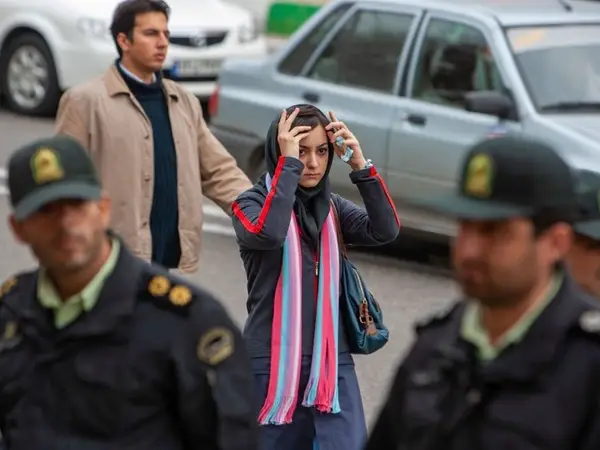Conflicting statements abound by Iranian officials about measures to enforce hijab amid ongoing protests ignited by the death of Mahsa Amini by hijab patrols.
Following the recent propaganda stunt by the government that the so-called ‘morality police’ has been disbanded, foreign and Iranian media are full of interpretations of how the regime plans to both enforce the dress code regulations and at the same time appease protesters.
On Tuesday, hardliner lawmaker and member of parliament’s cultural committee Hossein Jalali said that hijab enforcement will never be abolished, ensuring that “veils will be back on women’s heads within two weeks.” His remark shows that a growing number of Iranian women who are appearing in public without hijab since protests began in mid-September.
Confirming that the regime is making some decisions about hijab rules, the lawmaker explained that the methods for enforcing hijab may change, adding that “it is possible that women who do not observe hijab would be informed via SMS, asking them to respect the law. After notifying them, we enter the warning stage... and in the third stage, the bank account of the person who unveiled may be blocked."
Jalali did not elaborate on how the government intends to identify the people who unveil in public to send them text messages. However, there were earlier reports that the Islamic Republic was about to start using cameras in the metro to track and identify women. Such measures had been announced as part of efforts by President Ebrahim Raisi’s hardliner administration to intensify pressures on women in society throughout the year which culminated in the beating to death of Mahsa Amini by hijab enforcers.
On Monday, Ali Khan-Mohammadi, the spokesperson of Iran’s Headquarters For Enjoining Right And Forbidding Evil, tasked with promoting the Islamic Republic’s interpretation of Islamic laws, echoed some reports about the end of the hijab police, saying that "the mission of the morality and social safety patrols (the official name for the hijab police) is over."
He added that new measures will be implemented "in a more modern framework, using the technologies that already exist for this purpose and with an atmosphere that is not one-sided."
Iran's police have so far declined to confirm Prosecutor General Mohammad-Jafar Montazeri’s claim on December 3 that the notorious "morality police" has been disbanded, as international media trumpeted the report. Shargh daily reported Monday that it had contacted the head of public relations of the Greater Tehran Law Enforcement, Colonel Ali Sabahi, to verify the claim but the official refused to make any comments.
The news about disbandment of ‘morality police’ was widely covered by Persian and foreign media as a measure by the Islamic Republic to calm the unrest. However, state-run media immediately cast doubt on any substantial change in hijab enforcement.
Montazeri’s suggestion made headlines in many major international media and even made US Secretary of State Antony Blinken cautiously comment on it in an interview with the CBS.
Many activists, such as US-based Masih Alinejad, have debunked Montazeri’s claim as a sheer publicity stunt or even misinformation spread by a dictatorial regime that is about to fall. However, there are some journalists such as Negar Mortazavi and Farnaz Fassihi of the New York Times who called the measures a victory for Iranians, eliciting condemnations by Iranian activists.
Human rights group Amnesty International has issued a statement regarding the issue, urging the international community not to be “deceived by dubious claims of disbanding morality police.”
“The Prosecutor General’s statement was deliberately vague and failed to mention the legal and policy infrastructure that keeps the practice of compulsory veiling against women and girls firmly in place,” said Heba Morayef, Amnesty International’s Regional Director for the Middle East and North Africa. “The international community and global media must not allow the Iranian authorities to pull the wool over their eyes. Compulsory veiling is entrenched in Iran’s Penal Code and other laws and regulations that enable security and administrative bodies to subject women to arbitrary arrest and detention and deny them access to public institutions including hospitals, schools, government offices and airports if they do not cover their hair.”
